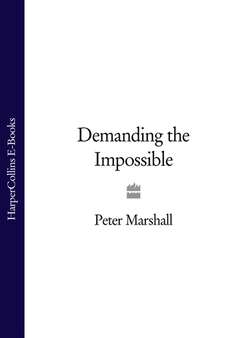Читать книгу Demanding the Impossible - Peter Marshall - Страница 58
Walt Whitman
ОглавлениеWalt Whitman was not a member of Emerson’s literary circle in Concord, but the Sage recognized him immediately as a kindred spirit. When the first edition of his rhapsodic book of poems Leaves of Grass (1855) appeared, he greeted Whitman ‘at the beginning of a great career’, and wished him ‘joy of ‘your free and brave thought’.4 After their meeting, Emerson went on to praise Whitman’s lawless nature.
Whitman had a completely different background from Emerson. He left school at eleven and held several odd jobs, but gradually began earning a living through printing and journalism. He became the editor of the Brooklyn Democrat paper Eagle, but was sacked for supporting the Freedom movement. He then founded his own paper the Freeman but it folded within a year. Little of his early writing anticipated the remarkable originality of his first volume of twelve untitled poems which became expanded in Leaves of Grass. Whitman intended his poetry, with its remarkable mixture of the earthy and the mystical, to be read by the working man and woman of America. Yet, apart from Emerson’s approval, it was not well received.
A strong democratic and egalitarian impetus and sensibility fire all Whitman’s work. He felt that the New World needed poems of ‘the democratic average and basic equality’.5 In ‘A Thought by the Roadside’, he wrote:
Of Equality – as if it harm’d me, giving others the same chances and rights as myself – as if it were not indispensable to my own rights that others possess the same.6
At the same time, Whitman like Emerson was a great individualist. He sang a song of himself and offered an exposé of his own personality in his poems of freedom. But while he celebrated the sacredness of the self, he also praised the love of comrades. He therefore combined his love of comradeship with a strong sense of individuality; he wanted his poems to stress American individuality and assist it—‘not only because that is a great lesson in Nature, amid all her generalizing laws, but as a counterpoise to the leveling; tendencies of Democracy’. It was the ambitious thought of his song to form ‘myriads of fully develop’d and enclosing individuals’.7
As a journalist, Whitman knew at first hand the corrupting nature of everyday politics. He also directly suffered at the hands of the State. He served as a nurse in the military hospitals of Washington during the Civil War and revealed his sympathy for the common soldier and his hatred of war in Drum-Taps (1865). Afterwards, he became a clerk in the Department of the Interior until the Secretary discovered he was there and dismissed him as the author of a Vulgar’ book.
Whitman therefore had good reason to consider politicians and judges as ‘scum floating atop of the waters’ of society—‘as bats and night-dogs askant in the capitol.8 He also advised the working men and women of America thus:
To the States or any one of them, or any city of the States, Resist much, obey little,
Once unquestioning obedience, once fully enslaved,
Once fully enslaved, no nation, no state, city of this earth, ever afterwards resumes its liberty.9
Whitman spoke on behalf of most anarchists when he asked ‘What do you suppose will satisfy the soul, except to walk free and own no superior?’ But although a radically democratic conception of society emerges from his poetry, he did not offer any clear or definite vision of a free society.
